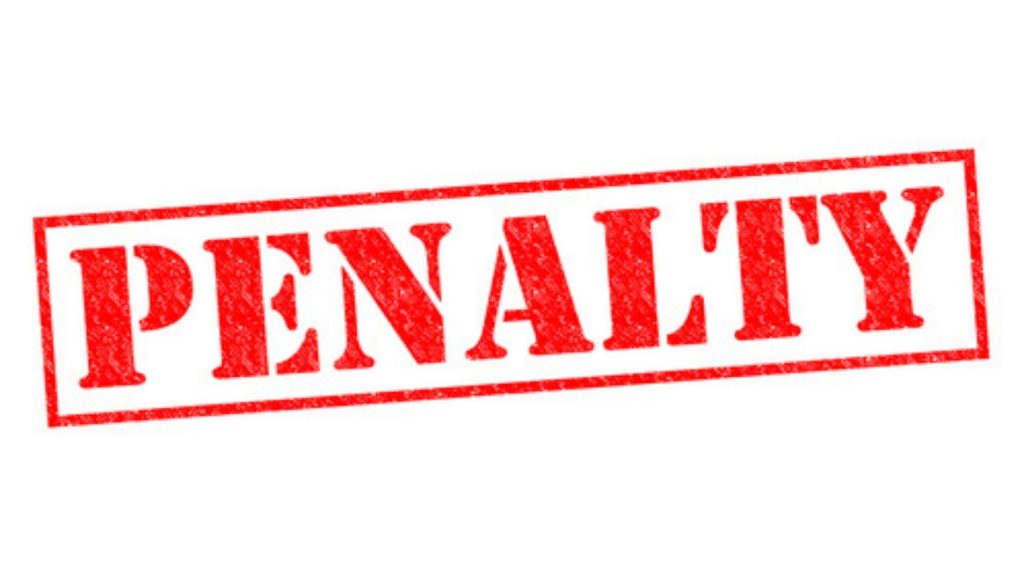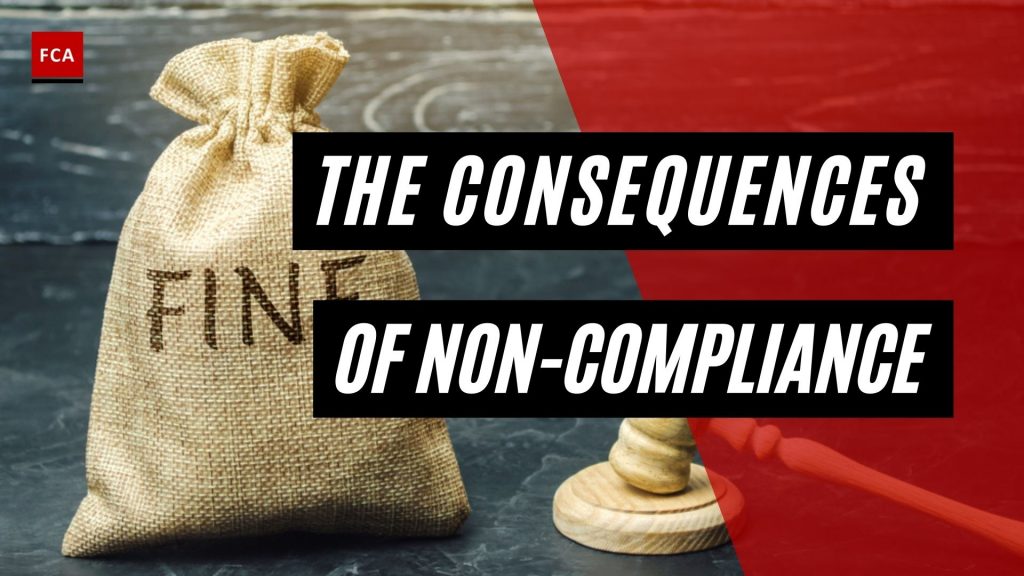The consequences of non-compliance with applicable sanctions laws and regulations. Let me tell you this right away, sanctions violations are probably one of the worst things that you can have as an organization.
The Consequences Of Non-Compliance
Noncompliance, at its core, can result in civil penalties and criminal punishments, even prison. The UN and EU rely on members to enforce sanctions regimes. The US is best known for its enforcement of penalties and the resulting fines, which is why we will speak first and foremost about US sanctions violations in this lesson. However, other nations have begun issuing more severe penalties for sanctions violations.

Office of Foreign Assets Control (OFAC)
So, within the US, OFAC uses its enforcement guidelines as the method for determining whether additional investigation is merited, whether there should be a civil penalty, and if so, what the amount of the civil penalty should be. When determining whether to initiate a civil enforcement proceeding, OFAC considers factors such as “whether the violation involved willful or reckless conduct, the harm the violation caused to the sanctions program objectives, and the individual characteristics of the violator.”38 These characteristics may include whether the violator has a sanctions compliance program, how sophisticated the program is, and what, if any, remedial measures were taken to address the issue and prevent its recurrence.
Another consideration is whether the entity voluntarily self-disclosed the potential violation. If a company determines that it has violated OFAC sanctions, it may file a voluntary self-disclosure, taking the position that the violation only constitutes a civil violation as opposed to a criminal violation. However, a company may file a voluntary self-disclosure, and OFAC may disagree with its filings or the nature of the violation.
However, if the case is an egregious case, meaning that the activity was willful or reckless or the entity was aware of the conduct, this will be another factor taken into consideration.
Response To A Violation
In response to a violation, OFAC may take no action or may take a number of actions, including issuing a caution, imposing a civil monetary penalty, or even referring the case for criminal prosecution.
OFAC also has a schedule for how it administers fines based on transactions, and there is a certain variance based on the particular program. For example, under the Kingpin Act, the maximum penalty is 1 million US-dollar per violation. The severity (or amount) of the fine is directly correlated with the amount of a transaction value. The higher the transaction value, the higher the fine.
Additional considerations for mitigating the potential penalties are whether the entity cooperated with OFAC’s investigation, whether the management was involved in the violation, and whether the entity has a robust compliance program in place.

Legal Consequences
To reduce the risk of a security breach, businesses are required by law to follow privacy and data protection regulations. Any failure will result in the legal consequences listed below.
- Fines and penalties: Organizations that violate privacy standards may face fines and penalties imposed by the regulatory bodies that govern them. These fines may vary depending on the severity of the violation and the regulatory body in charge of the issue. GDPR fines, for example, can cost an organization up to 4% of its revenue.
- Lawsuits: When a data breach occurs as a result of noncompliance, the consequences go beyond fines and penalties. Customers, employees, vendors, and other stakeholders are all affected by a data breach. There is a strong possibility that these affected parties will decide to take legal action and file a lawsuit.
- Regulatory scrutiny: Recovering from a security breach caused by noncompliance is not an easy task. Even after paying fines and penalties, businesses may face costly regulatory audits for years.
- Imprisonment: Regulatory standards require organizations to take the necessary steps to protect their customers’ data. In the most serious cases of noncompliance, a company’s owners, directors, and executives may face prison time for criminal negligence.
Final Thoughts
Typically, compliance begins with the creation of appropriate policies that govern data and other security measures. By implementing these controls, you can reduce a variety of risks to your IT infrastructure. Furthermore, compliance is not a one-time task. Organizations must constantly review the regulatory standards that govern their operations and fill gaps in compliance adherence. With a strong commitment to compliance, you can not only avoid fines and penalties, but also improve your organization’s overall security posture.









